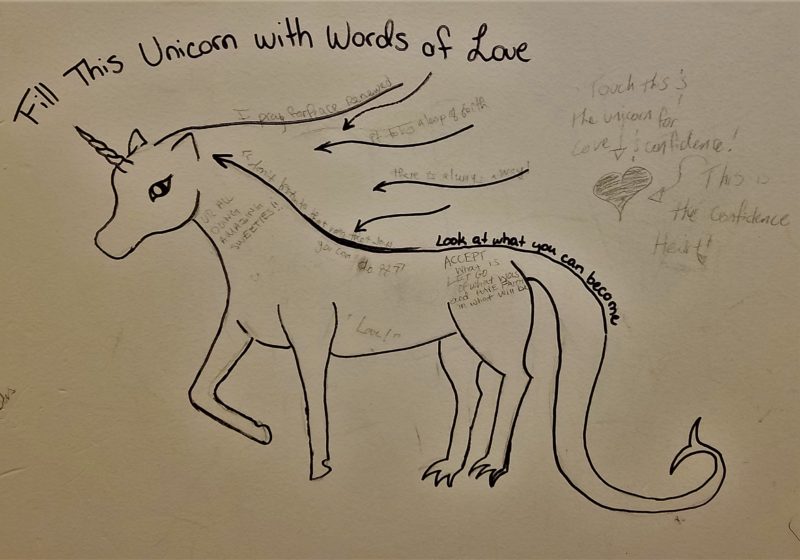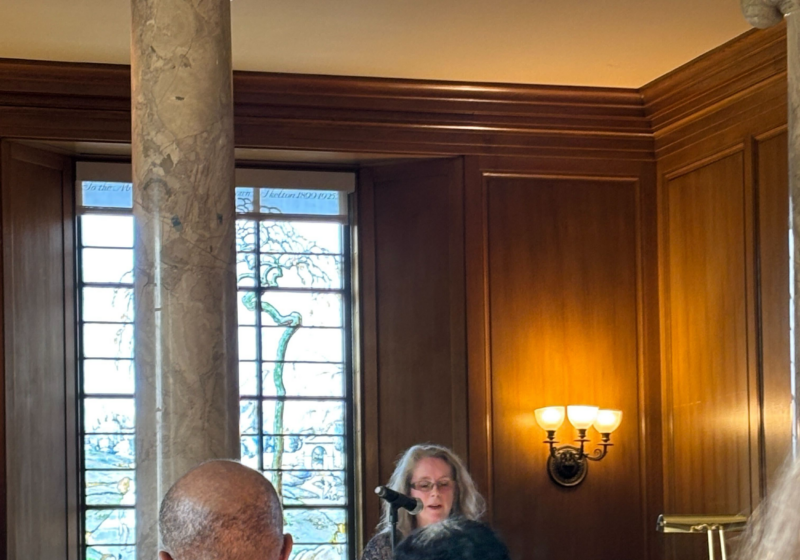College life can get incredibly stressful. For some, the best way to manage it might be running, ranting to a friend, listening to music, or even a long nap. But for students frequenting a particular women’s bathroom stall on campus, their de-stressor of choice is venting to the walls.
As high up as people can reach, stretching down to the floor are dozens, if not hundreds, of messages written by students in this bathroom stall. Diary entries, inspiring quotes and doodles, cries for help, love confessions, and words of encouragement are scrawled on every writable surface. Some are deeply personal, while others just mark that this person was here. They’re messy, both in their appearance and content, and some are hard to read, but they’re worth deciphering.
Having a secret can feel like a burden, and this space has helped some to alleviate that burden. One student will write what they’re going through, holding nothing back, and every other student who reads it will do their best to write a message of support or encouragement. Normally taboo or too personal topics like rape, mental health, abuse, or addiction have found a place on the off-yellow walls. Students questioning their sexuality, who might not have anyone to go to in real life, have found solace here among one another.
It’s not all negative, as many students have taken the space to write their favorite inspiring quotes, or to spread love and care, responding to others’ messages with any support they can give. There’s even a “positivity unicorn” drawn, covered in uplifting messages.
Walls can’t talk back to you, or tell anybody what you said, and this anonymity is a big part of the appeal.
“There’s something about an anonymous outlet that takes away some of the fear […] There’s less fear of judgement or criticism. People find comfortability in anonymous outlets. We’ve seen it with the PostSecret blog, YikYak (when that was a thing), and bathroom stalls,” said former RESTORE employee Emily LoBrutto, who currently works for UR’s CARE network.
The walls function like an anonymous blog. “But in a way it’s more private, because there’s no way to trace the comments back to the writer (like with an IP address),” LoBrutto said.
There isn’t a set list of rules for the bathroom, but the entries lead by example: say as much or as little of whatever you want, and don’t judge anybody else. And for the most part, those rules have been closely followed.
This protected haven the bathroom walls create can be a form of unconventional therapy. According to LoBrutto, “A lot of students want to feel connection, to know they’re not alone, but there’s a fear of vulnerability, and some things are incredibly painful to speak about out loud, or with your friends and loved ones […] In a way, [writing] takes something that’s consuming us and puts it out into the physical world. Sometimes that can release some of the ‘hold’ it has on people.”
For the sake of protecting writers, both past and present, we have kept the specific location of this bathroom a secret.
The University has many resources both on and off campus for dealing with sexual misconduct. The University Counseling Center is also available for consultation 24/7 about all matters at (585) 275-3113.
UR can only do so much to facilitate mental health awareness and care on campus. Inevitable issues like paperwork and wait times can discourage students from enlisting the counseling center. Or a fear of going on record may dissuade a student from reporting sexual assault. This bathroom isn’t the sort of thing UR is going to add to its tours for prospective students, but it’s part of what makes our community so special. A space like this cannot be artificially made.






